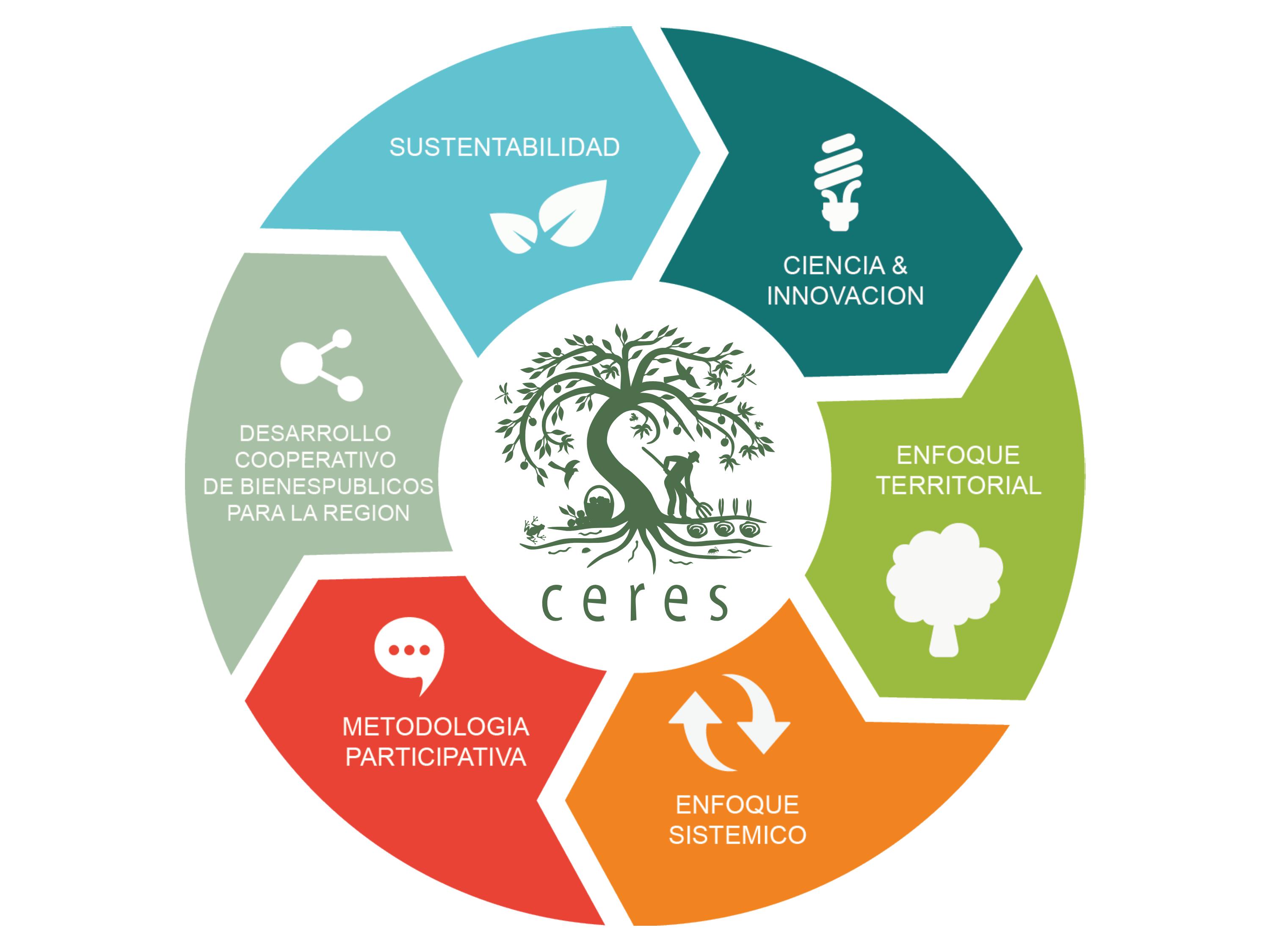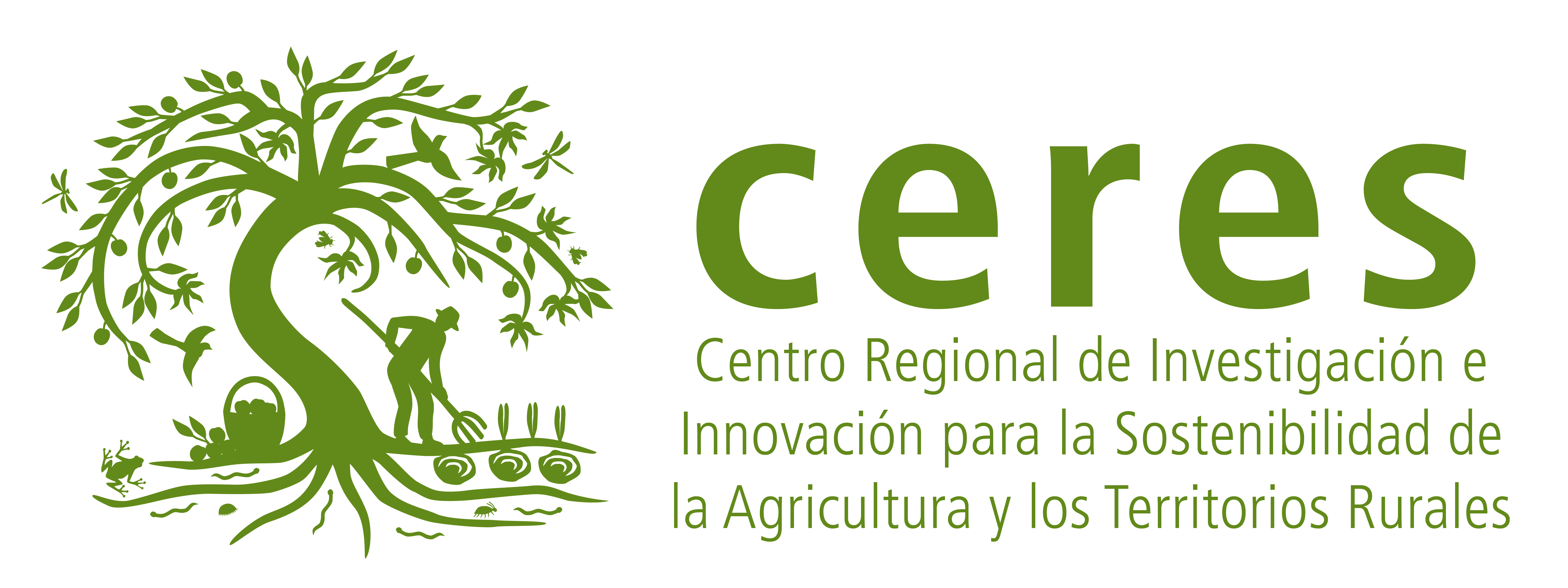Centro Ceres
MISSION.
Ceres’s mission is to carry out scientific, applied and interdisciplinary research to promote models of sustainable development in agriculture and rural territories. The center promotes innovation, generating and adapting knowledge, developing technologies, opening spaces for dialogue, creating networks and facilitating learning processes. Ceres works with and for the community, in order to improve the quality of life of people in the Valparaíso region.
VIEW.
Ceres aspires to be a national reference in research and innovation for the sustainability of agriculture and rural territories. It seeks to be an agent of change in the face of local problems and demands in agriculture, rurality and landscape issues. In a global context, it aspires to be recognized as a center that conducts ethically and politically committed research, based on citizen participation, linked to the social environment and oriented to the public service.
HISTORY.
In the 1980s and 1990s there was a boom in agriculture in Chile. The agricultural business based on the production of monocultures, with high use of agrochemicals, was privileged. Despite its high productivity, this model soon began to generate compacted, lifeless soils, contamination of underground layers with nitrates, food with pesticide residues, among other effects.
This situation motivated a group of academics from the Pontifical Catholic University of Valparaíso, led by Eduardo Gratacós, to change direction. Other alternatives for agronomy could and should be planned. It was necessary to propose another way of dealing with nature and of conceiving rural territories.
The Ceres Center was born under this diagnosis and these ideals. In a joint initiative between the PUCV, the Regional Government of Valparaíso and Conicyt, the center was established in February 2011, with the name of “Regional Center for Fruit and Vegetable Innovation of Valparaíso”.
In 2012, Ceres began the development of a technological package for the biological restoration of soils, oriented to fruit farms. The first 5 research projects were awarded and the implementation of a white mosquito monitoring network, a pest insect of regional relevance, began.
In 2013 the center implemented the soil chromatography laboratory and the first demonstration module of agroecological production techniques, in an area of 7000 m2. Additionally, the study of the Apis Miellifera began, collecting information on the causes of the collapse of the hives.

In 2014, projects associated with the collection and use of water for agriculture were carried out. In parallel, the first institutional website was developed and relations with regional, national and international centers were consolidated. Likewise, the first services provided to the community were generated, associated with training in agroecology and soil chromatography.
In 2015 the center developed a project aimed at the transfer of composting techniques for small farmers, which achieved the conversion of its beneficiaries to organic systems. That same year, Ceres was awarded two projects of the Newton (British Council) fund, which allowed the generation of important networks with the United Kingdom. In 2015, the first social capital strengthening project developed by the center was also executed, which allowed for the establishment of formal networks and the generation of a roadmap for beekeeping sustainability in the region. That same year, construction of the current downtown building began, with an innovative architectural design.
At the end of 2015, Ceres was awarded, with a notable rating, the Center’s Continuity Project, with the participation and support of Conicyt, the Pontificia Universidad Católica de Valparaíso, the Illustrious Municipality of Quillota y Quintil S.A.
In 2016, the construction of the current downtown building was completed and the entire team moved to that place. The implementation of a new agroecological productive unit of 2.2 hectares, donated by the company Quintil S.A, where collaborative research, extensionism and education is currently underway, was also initiated. The same year the center was awarded 5 projects, highlighting one aimed at revitalizing the cultivation of custard apple, the traditional fruit of the central valley of Chile, and another aimed at strengthening the social capital associated with the Campana-Peñuelas Biosphere Reserve. Finally, that same year, the center published a manual for determining the biological condition of the soil.
In 2017, the construction of the center’s auditorium began, under the principles of sustainable architecture, and the constitution of the center into a corporation began. At the same time, scientific research was formally initiated in the agroecological module, through the award of a strengthening project to regional centers of Conicyt. During the same year 2017, the center worked on its communications to refine a solid institutional identity and strengthen internal communications. Within that framework, the Welfare Committee was formed, consisting of one member of each program, democratically elected by their peers.
In 2018, a journalist and a communication consultant joined the communications team of the center, significantly strengthening its positioning. The creation of a ‘roadmap’ that identifies the current state and the desired state of the center at 10 years began.
